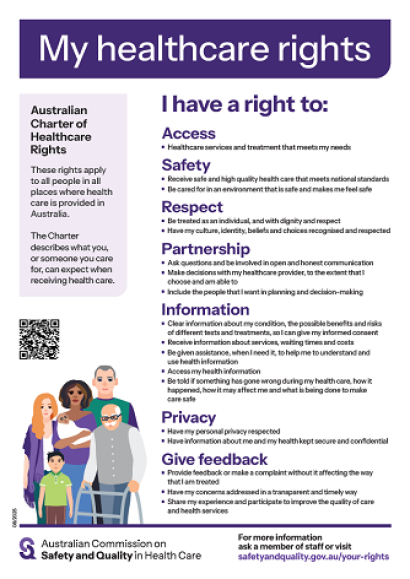In this six-part Consumer Insights Video Series, you can hear from consumer representatives working in health care. Across the series, consumers share their perceptions, experiences and recommendations, helping to raise awareness and inspire positive change.
The Commission has developed an extensive range of supporting resources for everyone to understand and use the Australian Charter of Healthcare Rights (the Charter). These resources include video and audio files.
The Charter has been adapted to suit specific audiences and purposes. Use the resources on this page to support implementation of the Charter or to help people understand and use the Charter.
The Hip Fracture Clinical Care Standard has been endorsed by a number of key professional associations and health organisations listed below.
Resources to support implementation by healthcare services and clinicians.
Information for healthcare services to guide practice and monitor improvement using the clinical care standard, and resources to support implementation.









